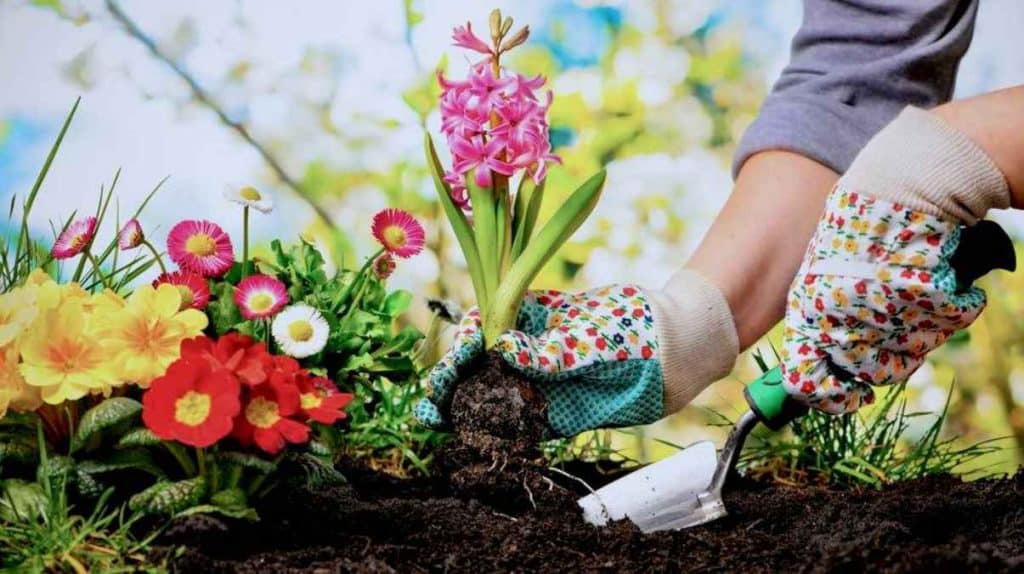Gardening is a volatile hobby that requires dedication, research, and patience, which is why inexperienced gardeners often give up fairly quickly. However, caring for plants is a therapeutic and valuable hobby that invites peace, knowledge, and produce to your life, so don’t give up just yet.
Instead, keep reading to learn how you can become a more experienced gardener and keep your plants happy and healthy.
1) Dress the Part
To be an experienced gardener, you must not be afraid to dress the part. Rainboots and old sneakers, gloves, a sun hat, and thick sunscreen may look silly to non-gardeners; however, they are worth the potential embarrassment. These layers and skin coverings are used to keep you safe from the sun, pests, animals, and poisonous plants.
2) Step Outside of Your Comfort Zone
Stepping out of your comfort zone goes further than wearing gardening gear. Step out of your comfort zone by growing plants that you are unfamiliar with and may require more effort.
Additionally, you can step out of your comfort zone by dedicating more time to your garden.
3) Create a Schedule
The best gardeners follow a daily or weekly schedule that includes caring for their plants. Your schedule may include tasks like watering, feeding, pruning, and keeping up with the surrounding lawn.
As you get used to your new schedule, taking care of your garden will feel effortless, leaving room for more advanced gardening techniques.
4) De-Weed
Weeding your garden is essential to the survival of your plants. When weeds become overgrown in your garden bed, the plants begin competing for nutrients, and some may not be able to thrive.
Some gardeners choose to add ground cover plants like purslane or barrier fabrics to their garden to keep the weeds out.
5) Grow Indoors
During the off-season you can keep your gardening skills sharp by growing some plants indoors.
Some plants that thrive indoors and can later be transplanted outside include tomatoes, marijuana, broccoli, and cucumbers.
You can mimic an outdoor environment with heat lamps, fans, and timed lights.
6) Keep a Journal
If you want to become an experienced gardener, consider adding journaling to your hobby list.
As you introduce new soils, items, and experimental methods to your plants, record the outcomes and reactions in a journal. Over time, you will have a well-developed guide of what to do and not to do for each plant.
Your journal should include environment or weather changes, plant additions, pest issues, and any other detail you notice while tending to your garden.
7) Inspect Your Plants
For your plants to thrive, you must carefully inspect them regularly. Inspect your plant’s leaves, flowers, and vegetables for signs of pest infestations, mold, and wilting.
The inspection process may be time-consuming, but it helps you achieve the best outcome possible.
8) Learn From Your Mistakes
All gardeners make mistakes, and what sets experienced gardeners apart from amateurs is their ability to learn from their mistakes.
Choose to embrace your mistakes and use them as a learning experience. Each mistake made serves as a clue to what works best for your garden, and if you pay attention, those mistakes might answer questions you didn’t know you had.
9) Do Your Research
You can’t just throw seeds in the yard, water them, and hope they grow. The labeling on the back of each seed packet will help you identify the proper planting conditions but provide no information on other important factors.
Research your geographical location, which pests are attracted to your plants, how much water each species needs, and which plants serve as great companions to one another.
10) Take Advice From Others
It can be irritating when Martha from down the road mentions her prize-winning roses while staring at your flowers wilting onto the driveway. But she may have valuable advice to share, so instead of shrugging her off, invite her into your garden and pick her brain for tips.
Never be too proud to take advice from more experienced gardeners .They may have the solution to problems you have spent weeks trying to solve.
11) Compost
Adding compost to your garden bed is one of the most beneficial things you can do for your plants. A healthy, well-cared-for compost pile will be nutrient-rich already adjusted to the outdoor environment.
Your compost pile also serves as a natural recycling center for fallen leaves, twigs, rotten fruits and vegetables, and pulled weeds. In other words, no part of your garden will go to waste; it will just be temporarily relocated until it’s ready to feed back to your plants to help them thrive.
